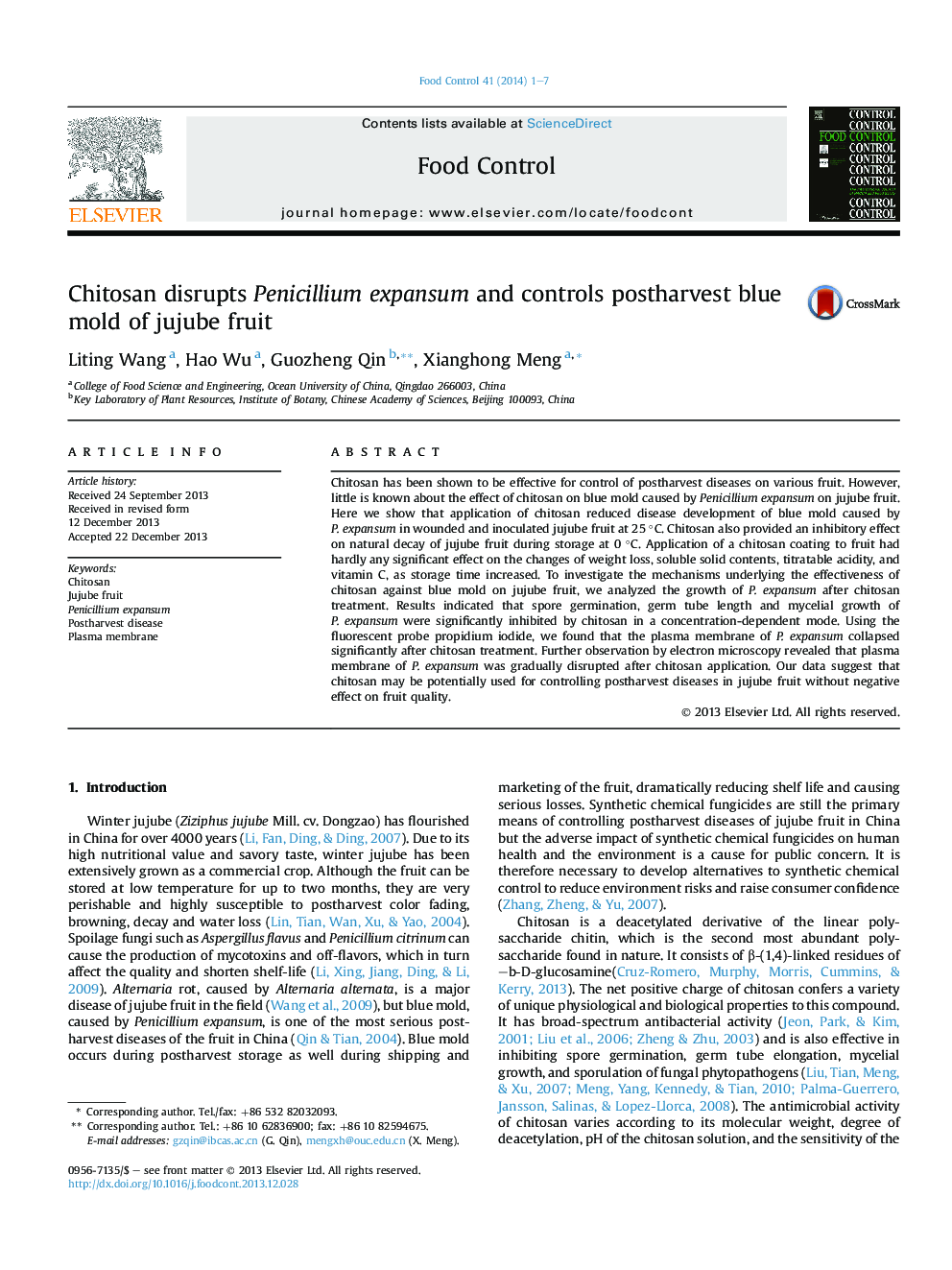| Article ID | Journal | Published Year | Pages | File Type |
|---|---|---|---|---|
| 6391915 | Food Control | 2014 | 7 Pages |
Abstract
Chitosan has been shown to be effective for control of postharvest diseases on various fruit. However, little is known about the effect of chitosan on blue mold caused by Penicillium expansum on jujube fruit. Here we show that application of chitosan reduced disease development of blue mold caused by P. expansum in wounded and inoculated jujube fruit at 25 °C. Chitosan also provided an inhibitory effect on natural decay of jujube fruit during storage at 0 °C. Application of a chitosan coating to fruit had hardly any significant effect on the changes of weight loss, soluble solid contents, titratable acidity, and vitamin C, as storage time increased. To investigate the mechanisms underlying the effectiveness of chitosan against blue mold on jujube fruit, we analyzed the growth of P. expansum after chitosan treatment. Results indicated that spore germination, germ tube length and mycelial growth of P. expansum were significantly inhibited by chitosan in a concentration-dependent mode. Using the fluorescent probe propidium iodide, we found that the plasma membrane of P. expansum collapsed significantly after chitosan treatment. Further observation by electron microscopy revealed that plasma membrane of P. expansum was gradually disrupted after chitosan application. Our data suggest that chitosan may be potentially used for controlling postharvest diseases in jujube fruit without negative effect on fruit quality.
Related Topics
Life Sciences
Agricultural and Biological Sciences
Food Science
Authors
Liting Wang, Hao Wu, Guozheng Qin, Xianghong Meng,
